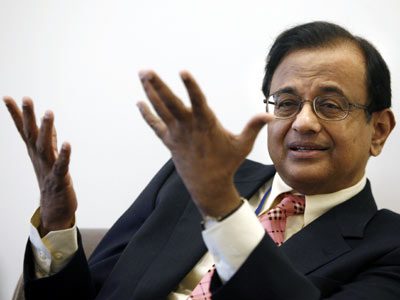Reading Time: 4 minutes
Financial corruption in India has been making headlines around the world. Most such corruptions have political blessings, directly or indirectly. Few will disagree that no government has been serious enough to combat the public-private cooperation in promoting and supporting corruption. And, it is no wonder that the country has acquired the image of being one of the world’s most corrupt nations, featuring regularly among the top in the Transparency International chart. An expose, for Different Truths.
Call it an irony of fate or, maybe, his tryst with destiny, Palaniappan Chidambaram, the country’s four-time finance minister, is in a mess. Chidambaram has been charge sheeted by his once trusted Income Tax department for allegedly making investments in foreign assets and not disclosing them in tax returns. Last week, Enforcement Directorate (ED) charged his son Karti in Aircel-Maxis case before a special court in Delhi. The 4,500-page charge-sheet also highlighted P Chidambaram’s alleged role in the case. Earlier, the Income Tax department had filed as many as four prosecution complaints against Chidambaram and three of his immediate family members — wife Nalini, Karti, and daughter-in-law Srinidhi — before a special court in Chennai under section 50 of the Black Money (Undisclosed Foreign Income and Assets) and Imposition of Tax Act, 2015.
Chidambaram is the country’s second former union finance minister to face such an ignominy after TT Krishnamachari, both from Tamil Nadu. TTK was removed as the finance minister by the then prime minister Jawaharlal Nehru in 1958. TTK had allegedly leaked part of taxation proposals in the union budget that helped a few of his stockbroker friends make money. Interestingly, he was reinstalled by the government after a gap of almost five years. Will Chidambaram be as lucky as TTK, anytime in future? Time alone can tell.
Ironically, as the Union Finance Minister, Chidambaram often spoke with conviction before the media against tax offenders and tax evaders and how taxmen would go after such people having multiple telephones, cars, home air-conditioners, good lifestyle, enjoying expensive holidays and yet concealing or understating their income and investments. Going by the ED and Income Tax department claims, alleged tax offences by Chidambaram and his family members by net value are, however, nowhere near the ones like convicted former union railway minister and Bihar chief minister Lalu Prasad Yadav, his son Tejashwi, Bihar’s former deputy CM, or former Haryana CM Bhupinder Singh Hooda and former Himachal Pradesh CM Virbhadra Singh.
Reportedly, the Chidambaram family’s alleged income or asset understatements would combine only around Rs. 10 crores. Nalini Chidambaram, Karti, and Srinidhi have been charged for allegedly not disclosing, either partly or fully, immovable assets like the one at Cambridge in the UK worth Rs 5.37 crore, property worth Rs 80 lakh, also in the UK, and asset worth Rs 3.28 crore in the US. The charge-sheets alleged that the Chidambarams did not disclose these investments to the tax authority as also by the firm co-owned by Karti – Chess Global Advisory — in violation of the black money law. The ED is separately investigating into P Chidambaram’s alleged involvement in the Rs 3,500 crore Aircel-Maxis (of Malaysia) deal.
Notably, the past records of most such investigations often ended in poor results. Therefore, there is no reason to be sure about Chidambaram’s conviction in the case. Investigative agencies are known to make much hypes and hooplas around hi-profile cases most of which finally seem to end in whimpers. The cases against former telecom minister Andimuthu Raja and Ms. Muthuvel Karunanidhi Kanimozi, MP and daughter of former Tamil Nadu chief minister, can be cited as good examples. Both were declared ‘not guilty’ in the 2G spectrum scam, by the court after they were made to spend months in jail at the instance of investigative agencies.
Nevertheless, corruption in high places in India, involving political rulers, bureaucrats, senior officials, bankers, and businessmen, is an established fact and growing. While the government is supposedly chasing in foreign countries so-called big bank swindlers and forex flounderers such as Vijay Mallya, Nirav Modi, Mehul Choksi, Lalit Modi, etc., few have questioned their political connections back home helping them rob banks and cheat the government. There is little public discussion or debate on the political support Mallya mastered to become a Rajya Sabha member. Which political parties were behind Mallya’s unopposed nomination in Rajya Sabha from Karnataka? What induced them to do so?
Not long ago, Minister of State for Personnel and Training, Jitender Singh, told Rajya Sabha that investigative agencies have registered corruption cases against 14 politicians, more than double the number booked in various corruption cases in the previous year. Of a total number of 6,414 cases under trial, 115 involved politicians. The number of politicians booked in various corruption cases in 2015 was 21. The CBI had filed a charge-sheet against Virbhadra Singh accusing him of amassing assets worth several crores of rupees. Hooda was charged with alleged irregularities in the acquisition of 400 acres of land at Haryana’s Manesar area in which farmers were allegedly cheated to the tune of Rs.1,500 crore. In the second case against Hooda, he was charged with the allotment of a plot in Panchkula to Associate Journals Limited (AJL) owned by the Gandhis.
Financial corruption in India has been making headlines around the world. Most such corruptions have political blessings, directly or indirectly. Few will disagree that no government has been serious enough to combat the public-private cooperation in promoting and supporting corruption. And, it is no wonder that the country has acquired the image of being one of the world’s most corrupt nations, featuring regularly among the top in the Transparency International chart. The international corruption watchdog’s last annual corruption perception index ranked India as 81st more corrupt country in the world along with Ghana, Morocco and Turkey. The report characterised anti-corruption efforts in the Asia-Pacific as slow and imperfect. Transparency International singled India out, along with the Maldives and the Philippines, as one of the region’s worst offenders in this regard. Unfortunately, the latest cases against Chidambaram and his immediate family members, alleging tax evasion and foreign exchange violation, will strengthen Transparency International’s claims and further dampen India’s image in the global corruption index.
Nantoo Banerjee
©IPA Service
Photo from the Internet















